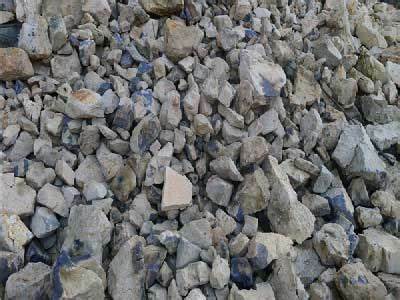the following companies as the key players in the global calcined Bauxite Market—Great Lakes Minerals, LLC (US), LKAB (Sweden), EK-COMPANY AG (Germany), Bosai Group (China), First Bauxite LLC (US), Boud Minerals Limited (UK), Saurashtra Calcine Bauxite & Allied Industries Ltd (India), and Sinocean Industrial Limited (China).
Market Highlights
The global calcined Bauxite Market is projected to be valued at USD 2,159 million by the end of 2028,registering a CAGR of more than 5.15%during the forecast period.
Calcined bauxite is produced by sintering high alumina bauxite at temperatures between 1,600 to 1,800°C. Calcined bauxite is an ideal choice of material used in the production of various types of refractory materials. This is attributed to its ability to withstand extremely high temperatures and corrosive environments prevailing inside the blast furnaces. In addition to this, calcined bauxite is widely used in producing a variety of abrasives on account of its high grain hardness and angular shape.
The key driver of the global calcined bauxite market is its extensive use for brown fused alumina, further used to produce refractory materials. Brown fused alumina is produced by mixing calcined bauxite, anthracite, and iron filings, and additives in specific proportions to be heated together at about 2,250℃ temperature.Brown fused alumina is an extremely hard material with high bulk density and a nine on the Mohs scale of mineral hardness. The growing use of high alumina refractories in the steel production process is likely to fuel up the demand for the calcined bauxite market over the forecast period. This growth can be attributed to the high demand for steel across end-use industries such as construction, automotive, and aerospace.
In addition to this, brown fused alumina is used in the production of abrasives such as grinding wheels, sandpaper, and blasting media is projected to provide an additional boost to the product demand.Brown fused alumina is widely used to produce a wide range of refractory materials on account of its corrosion resistance and thermal resistance.
COVID Impact Analysis
The market witnessed a negative impact on account of the dependency of major calcined bauxite manufacturers located in North America, Europe, regions ofChina, India, and Guinea. The disruption in shipping networks created an acute shortage of bauxite in the market, thereby resulting in increased input costs for calcined bauxite manufacturers. The outbreak of the COVID-19 pandemic and subsequent implementation of lockdown strategies across the globe affected the logistics networks, which had a direct effect on the supply-demand of calcined bauxite to the world.
Segment Analysis
The global calcined Bauxite Market has been segmented on the basis of purity, application, and region.
Based on the purity, the global calcined bauxite market is bifurcated into high purity and low purity. The high purity segment was valued at USD 1,074.59 million in 2020 and emerged as the faster-growing segment registering a significant CAGR during the assessment period. Refractory grade bauxites, also known as high purity bauxites, have a high alumina content and low alkali content with low impurities (iron oxide and titania specifically), ensuring stable temperature strength. Key applications of high purity calcined bauxite include high alumina refractory bricks and castables for the iron & steel, cement, glass, and oil industries.
On the basis of application, the global calcined bauxite market is segmented into abrasives, refractory materials, metallurgy, road surfacing, and others. Among these, the refractory materials segment accounted for a significant market share in 2020. Refractory bauxite is produced by sintering raw bauxite at more than 1,500°C, which results in a high aluminum content and low impurity. It is widely used to manufacture shaped and unshaped refractory products for the steel industry, foundries, glass, and cement plants.
Key Findings of the Study:
-
- The global calcined Bauxite Market is projected to reach a value of USD 2,159 million by 2028,at a CAGR of around 5.15% during the forecast period from 2021 to 2028.
-
- Asia-Pacific accounted for the largest market share in 2020 due to the presence of large bauxite ores in countries such as China, India, and Australia.
-
- Latin America is expected to be the second-fastest growing regional market registering a CAGR of over 5%.
-
- The market in the Middle East & Africa is likely to witness significant growth owing to Guinea being a key contributor to bauxite production.
-
- The growing use of renewable energy in the calcination process is a key opportunity for the players engaged in the global calcinated bauxite market.

